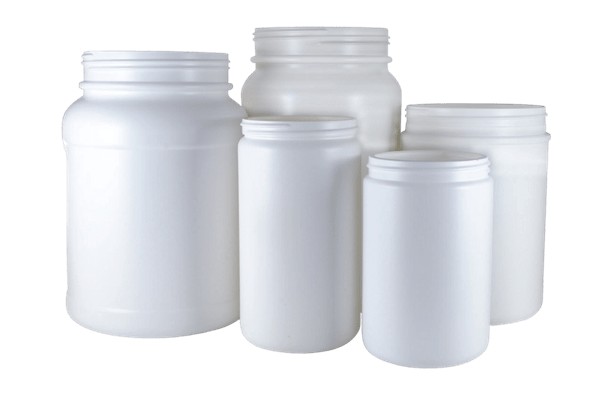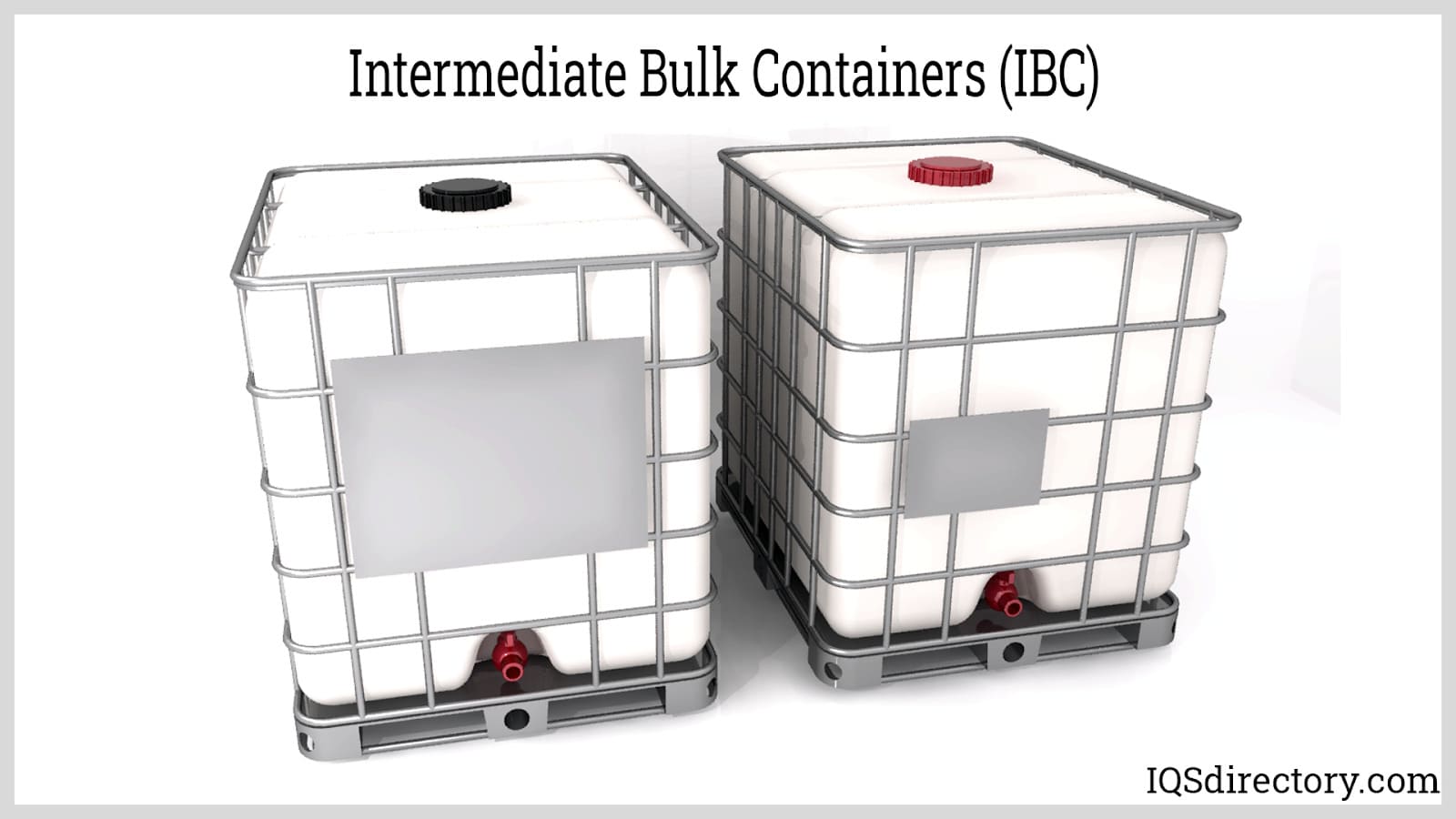Everything About Bulk Plastic Containers: Benefits, Applications, and Industry Insights
Mass plastic containers play a considerable function in different industries, providing advantages that enhance effectiveness and sustainability. Their light-weight nature minimizes shipping expenses, while their durability guarantees safe storage and transportation of diverse items. As business progressively seek green remedies, the need for these containers is expanding. This elevates vital concerns about the products used and the trends affecting their design. What ramifications do these variables have for the future of bulk plastic containers?
Advantages of Bulk Plastic Containers
Mass plastic containers offer a multitude of benefits in different sectors. Their lightweight design significantly decreases transportation expenses, allowing for reliable logistics and much easier handling. Additionally, these containers provide resilience and resistance to weather elements, chemicals, and physical effect, guaranteeing the secure storage space and transportation of products. The versatility of bulk plastic containers enables them to be built into various forms and dimensions, satisfying certain market requirements.

Usual Applications Throughout Industries
While numerous sectors use bulk plastic containers, their applications are specifically prominent in markets such as food and beverage, pharmaceuticals, agriculture, and production. In the food and drink market, these containers are important for keeping and carrying products like grains, liquids, and ready dishes, making certain quality and security. The pharmaceutical industry relies upon mass plastic containers for safe and secure storage space of injections and medications, keeping conformity with rigorous regulations.
In agriculture, these containers assist in efficient handling and transportation of fruit and vegetables, plant foods, and chemicals, while likewise supporting lasting practices through recyclability. Manufacturing industries make use of bulk plastic containers for parts storage space and production line procedures, advertising company and operations efficiency. In addition, these containers offer a significant duty in logistics and supply chain monitoring, simplifying the activity of products across different industries. On the whole, the flexibility of mass plastic containers makes them crucial across multiple markets.
Material and Layout Considerations
When picking bulk plastic containers, product and style considerations play an essential function in guaranteeing performance and conformity with market criteria. The selection of material greatly affects the container's longevity, weight capacity, and resistance to ecological aspects. Common materials consist of high-density polyethylene (HDPE) and polypropylene, recognized for their toughness and chemical resistance.
Style facets, such as shape, dimension, and useful site closure devices, also influence usability. Containers with ergonomic deals with and stackable designs enhance storage space efficiency and convenience of transportation. Additionally, attributes like venting or water drainage holes might be needed for certain applications, permitting for air blood circulation or fluid elimination.
Conformity with security regulations, such as FDA approvals for food-grade applications, is crucial. plastic bulk containers. Generally, cautious consideration of materials and layout can enhance performance and longevity, ensuring that bulk plastic containers fulfill the diverse demands of different industries properly
Fads wholesale Plastic Container Use
As markets develop, the usage of bulk plastic containers is increasingly influenced by sustainability and performance. Firms are selecting eco-friendly products, such as recycled plastics, to lessen environmental impact while keeping longevity. This shift is driven by consumer demand for regulative stress and sustainable practices focused on lowering plastic waste.
The fad towards automation in logistics and supply chain monitoring is improving container designs. Mass containers are currently being engineered for compatibility with automated systems, enhancing functional effectiveness. Lightweight designs are likewise acquiring grip, as they reduce shipping prices and power intake throughout transport.
Furthermore, customization is becoming a focal factor, enabling companies to customize containers to certain demands, thus optimizing area and performance. These patterns mirror a broader dedication to sustainability, innovation, and effectiveness within different markets, ensuring that mass plastic containers remain to play a vital role in modern supply chains.
Finest Practices for Storage and Transportation
Reliable storage and transport of mass plastic containers require adherence to finest techniques that boost safety and security and effectiveness. Containers need to be stacked safely, assuring that weight is equally distributed to prevent tipping or damage. Using pallets can assist in much easier movement and protect the containers from ground wetness. Additionally, proper labeling is necessary for fast identification and tracking during transit.
Temperature level control is another crucial element; extremes can navigate to this website jeopardize the stability of the products. It is advisable to store containers in a climate-controlled setting when essential. For transport, picking appropriate vehicles made for mass lots assurances stability and decreases danger during transportation.
Normal inspections of containers prior to storage space and transport assistance recognize any wear or damage, enabling prompt maintenance or replacement. By adhering to these ideal techniques, companies can maximize the lifecycle of bulk plastic containers while keeping functional efficiency.
Frequently Asked Inquiries

Are Bulk Plastic Containers Recyclable After Usage?
Yes, bulk plastic containers are usually recyclable after use. Recyclability depends on the material kind and regional recycling programs. Correct cleaning and sorting are vital to guarantee they are accepted by recycling facilities.

What Is the Life-span of Bulk Plastic Containers?
The life expectancy of mass plastic containers usually varies from five to 10 years, depending on usage problems, worldly top quality, and environmental factors. Bulk Plastic Containers. Correct upkeep can extend their longevity, making them a long-lasting storage service
Can Bulk Plastic Containers Be Customized?
Yes, bulk plastic containers can be personalized. Manufacturers usually use options for size, shade, material, and branding, permitting organizations to customize containers to their certain demands and improve their product discussion and functionality.
Exactly How Do Mass Plastic Containers Compare in Price to Alternatives?
Mass plastic containers usually use a reduced cost compared to alternatives like navigate to these guys metal or glass, because of their light-weight nature and resilience. This makes them a cost-efficient selection for organizations requiring reliable storage services.
Are There Safety Laws for Utilizing Bulk Plastic Containers?

Bulk plastic containers play a significant role in numerous sectors, providing advantages that enhance efficiency and sustainability. While various industries utilize bulk plastic containers, their applications are specifically famous in fields such as food and beverage, drugs, agriculture, and manufacturing. Manufacturing markets utilize bulk plastic containers for components storage space and setting up line procedures, promoting organization and workflow efficiency. When selecting mass plastic containers, product and design considerations play an important function in making sure performance and compliance with industry requirements. As industries evolve, the use of mass plastic containers is progressively affected by sustainability and efficiency.